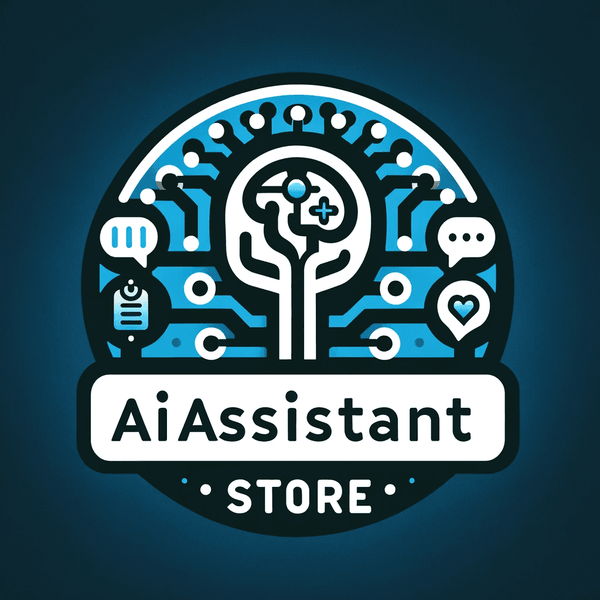Short take: Nope. It’s not the profession that’s disappearing, just certain chores. The real winners will be accountants who treat AI like a co-pilot, not an enemy at the gate.
Articles you may like to read after this one:
🔗 AI accounting software: How businesses can benefit
Discover advantages of AI accounting and best tools available.
🔗 Free AI tools for accounting that actually help
Explore practical free AI tools to simplify accounting tasks.
🔗 Best AI for finance questions: Top AI tools
Find smart AI tools delivering financial insights and guidance.
Why AI Feels Like Magic in Accounting 💡
It’s not just about “automation.” Honestly, that word undersells it. What AI does best is crank up the volume on work humans already do:
-
Speed: it chews through thousands of transactions before your coffee cools.
-
Accuracy: fewer fat-finger slips - assuming your inputs aren’t already a mess.
-
Pattern-spotting: sniffing out fraud, weird vendors, or subtle red flags across massive ledgers.
-
Stamina: it doesn’t call in sick or demand vacation days.
But here’s the catch: garbage in = garbage out. Even the flashiest model crashes if the underlying data pipeline is sloppy.
Where AI Trips Up 😬
Whenever judgment, nuance, or ethics are at the table, AI still wobbles:
-
Talking regulators through intent behind a messy tax position.
-
Giving actual strategic advice (e.g., should we refinance or restructure?).
-
Reading the temperature of a room - a stressed founder or a cautious board.
-
Carrying liability. Audit standards still expect professional skepticism and judgment from people [1].
Honestly, would you let a chatbot sign your audit report or argue your tax case solo? Didn’t think so.
The Jobs Question: Evolution, Not Extinction
-
Demand isn’t falling off. In the U.S., accountants and auditors are still on a growth path - about 5% from 2024–2034 [2]. That’s faster than the average job track.
-
But the mix is changing. Mundane reconciliations and coding invoices? Gone. That freed-up time is drifting into analytics, advisory, controls, and assurance.
-
Human oversight is non-negotiable. Audit standards hinge on judgment and skepticism [1]. Regulators, too, keep repeating: AI is a helper, not a replacement [3].
The Guardrails Everyone Forgets
-
EU AI Act (effective Aug 2024): If you’re deploying AI in finance - credit scoring, compliance workflows - you’re under new governance rules [4]. Think documentation, risk monitoring, and heavier scrutiny.
-
Audit standards: Professional judgment is the cornerstone, not an optional flair [1].
-
Regulator stance: They’re fine with AI crunching docs or surfacing anomalies - but only with humans steering [3].
Humans vs. Tools (Side-by-Side)
| Tool/Role | Excels At | Cost Ballpark | Why It Works—or Doesn’t |
|---|---|---|---|
| AI Bookkeeping Apps | Small/mid-sized business bookkeeping | Low monthly | Automates coding and receipts, but gets tripped up by oddball transactions or messy exports. |
| Fraud Detection AI | Banks, corporates, PE-backed firms | $$$$ | Flags duplicates, strange vendors, unusual payment trails. Great at early alerts - but only if strong controls are already in place [5]. |
| AI Tax Prep Tools | Freelancers & simple returns | Mid-range | Fast, reliable on straightforward filings. Stumbles once you throw in multi-jurisdiction or complex elections. |
| Human Accountants | Complex, high-stakes, regulated scenarios | Hourly/project/retainer | They bring empathy, strategy, and legal accountability - none of which algorithms can shoulder [1][3]. |
A Day in the Life (After AI Moves In)
Here’s the rhythm I’ve seen in modern finance teams:
-
Pre-close: AI highlights duplicate vendors and odd payment-term tweaks.
-
During close: Models spit out draft notes and proposed accruals. Humans clean them up.
-
Post-close: Analytics surface margin leakage; controllers translate findings into actual board decisions.
So no - the job didn’t vanish. The human part just climbed higher on the value ladder.
Proof That AI Helps (If You Govern It Right)
-
Fraud & controls: Companies using proactive analytics cut fraud losses almost in half compared to those that don’t [5].
-
Audit enablement: Regulators admit AI works for doc reviews and anomaly checks - but stress human review all the way [3].
-
Professional standards: No matter the tooling, skepticism and judgment remain central [1].
So, Will AI Wipe Out Accountants?
Not even close. It’s reshaping, not erasing. Honestly, think spreadsheets in the ’80s - the firms that leaned in pulled ahead. Same story now, just with added weight on governance and explainability.
Skills That Future-Proof You 🔮
-
Tool fluency: Know your AP automation, disclosure, rec systems, audit analytics.
-
Data hygiene: Champion clean charts of accounts and disciplined master data.
-
Advisory chops: Turn raw numbers into decisions.
-
Governance mindset: Flag bias, privacy, and compliance gaps before someone else does [4].
-
Communication: Explain outputs clearly - to founders, lenders, and audit committees.
Quick Playbook for AI Adoption
-
Start small: expense coding, vendor dedupes, simple recs.
-
Layer in controls: maker-checker rules, audit trails.
-
Document the pipeline: inputs, transformations, sign-offs.
-
Keep a human in the loop for material postings [1][3][4].
-
Track outcomes: not just cost savings but error rates, fraud recoveries, review hours.
-
Iterate: monthly calibration sessions; log prompts, edge cases, and overrides.
Limits Are Healthy
Why? Because trust lives in the limits:
-
Explainability: If you can’t explain the AI’s journal entry, don’t book it.
-
Accountability: Clients and courts hold you responsible, not the algorithm [1][3].
-
Compliance: Laws like the EU AI Act demand monitoring, documentation, and risk classification [4].
The Hidden Upside
Weirdly, AI gives you more time for people - boards, founders, budget owners. That’s where influence grows. Let machines do grunt work so you can do the big-picture work.
TL;DR ✨
AI will chew up repetitive work but not accountants themselves. The winning combo is human judgment + AI speed, wrapped with strong controls. Get fluent in tools, sharpen the narrative, and keep ethics front and center. The profession isn’t fading - it’s just leveling up.
References
-
IAASB — ISA 200 (Updated 2022): Professional Skepticism & Judgment
Link -
U.S. Bureau of Labor Statistics — Outlook (2024–2034): ~5% growth
Link -
PCAOB — Generative AI Spotlight (2024): Oversight & use cases
Link -
European Commission — AI Act (Aug 2024): Governance & obligations
Link -
ACFE — Fraud & Data Analytics: 50% lower fraud losses with proactive analytics
Link

